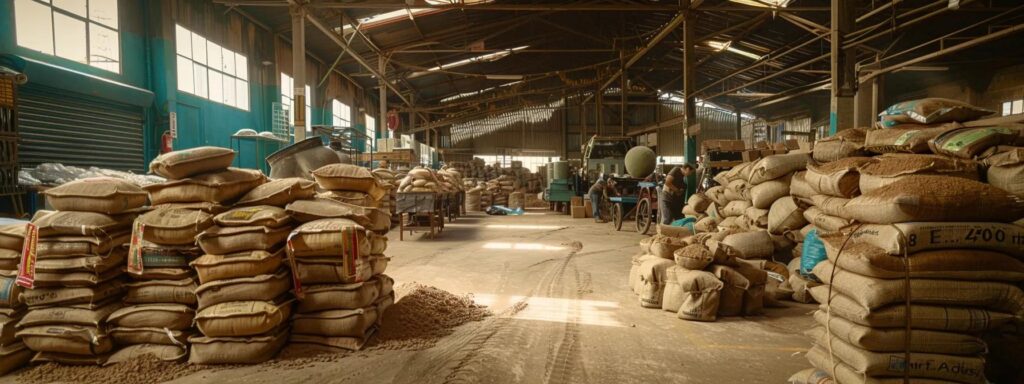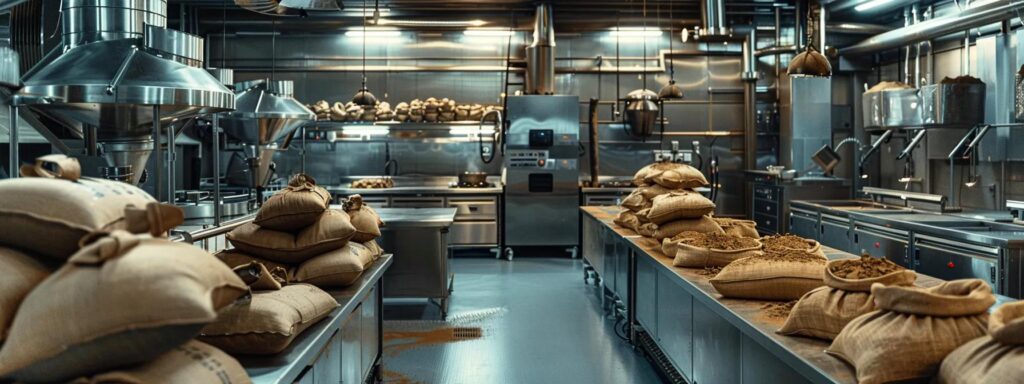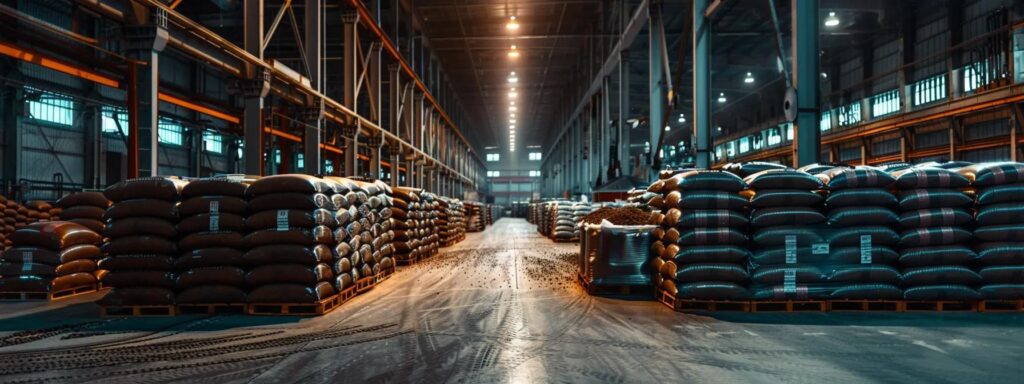Introduction
In today’s competitive food industry, reducing ingredient costs while maintaining high quality is paramount. Importers and business owners are increasingly looking to source cocoa powder in large quantities to meet production demands for products ranging from dark chocolate and cake mixes to hot chocolate and confectionery items. Purchasing cocoa powder wholesale not only offers cost benefits but also provides a consistent supply, flexibility in formulation, and control over ingredient specifications such as acidity, flavor extract, and nutritional content including calcium, potassium, and antioxidants. Companies like cocoator, a renowned cocoa powder exporter from Indonesia, are proving that bulk sourcing from reputable suppliers can optimize production efficiency and product quality.
This article explores comprehensive strategies for buying cocoa powder in bulk by elucidating key factors that influence pricing, quality indicators, and supplier reliability. Readers will learn about defining your order scale, understanding how wholesale differs from retail, and the benefits of direct sourcing. Furthermore, the article details how to identify high-grade cocoa powder, explore bulk price structures, and negotiate favorable terms while ensuring storage and logistic considerations are met. The following sections provide detailed insights into the procurement process, backed by real-world examples, tables, and peer-reviewed research, ensuring the importer or business owner can make informed decisions and secure premium bulk cocoa powder at competitive prices.
Transitioning into the main content, the following sections will walk through each critical step—from assessing quality and negotiating prices to finalizing supplier agreements and managing order logistics.
Understanding Wholesale Cocoa Powder Purchases

Wholesale cocoa powder procurement begins with recognizing the importance of scale. Importers and business owners must define what constitutes a bulk amount for their specific needs. Typically, wholesale quantities can range from 25 kilograms to several tonnes. The process involves understanding that purchasing directly from manufacturers or accredited exporters often results in better quality, lower prices, and enhanced supply chain transparency compared to retail buying.
Defining Bulk Quantities for Cocoa Powder
Bulk quantities are not a one-size-fits-all approach. They depend largely on the scale of production and the type of products you are manufacturing. For example, a small artisanal chocolate maker might purchase 25–50 kilograms per order, while large confectionery manufacturers would require tonnes per shipment. Quantifying your needs accurately helps in comparing price per kilogram or tonne, ensuring that less money is spent on ingredient procurement. Detailed demand forecasting is essential to avoid overstocking—which can affect shelf life—and under-ordering, which might disrupt production. Companies often work with suppliers to determine the optimal order size that balances production timelines, storage logistics, and cost efficiency.
How Wholesale Differs From Retail Cocoa Buying
Wholesale buying differs significantly from retail purchasing. When buying retail, products are often packaged in consumer-friendly sizes, take on higher packaging costs, and sometimes face a markup for smaller quantities. In contrast, wholesale purchases bypass these additional costs in favor of larger, often unbranded bulk packs. Additionally, wholesale transactions focus on long-term supply agreements that add extra benefits such as consistency in product quality and contractual price stability. Buyers must understand that wholesale deals might require commitments to sizeable financial transactions and strict payment terms, but the reduced cost per unit, focused ingredient import strategies, and room for negotiation on terms outweigh the potential disadvantages.
Typical Buyers Who Purchase Cocoa Powder in Bulk
Bulk cocoa powder buyers typically include manufacturers in the confectionery, bakery, beverage, and personal care sectors. In addition, importers working with large-scale chocolate bar production, cake mix companies, and even nutraceutical companies benefit from bulk sourcing due to the critical quality parameters like low acidity and the presence of specific nutritional profiles. Other buyers are food service companies that produce desserts and high-end baking ingredients. The main objective for these buyers is to secure cocoa powder that meets their production specifications—such as dark chocolate intensity, natural versus dutch processed cocoa, and even fair trade certification—at competitive wholesale prices, often sourced from recognized brands like Barry Callebaut or bean-to-bar manufacturers in Ecuador and Peru.
Advantages of Direct Sourcing for Bulk Cocoa
Direct sourcing from manufacturers or accredited exporters provides several advantages. Firstly, it eliminates intermediaries, thereby reducing costs and offering greater transparency in terms of product origin, certificate verifications, and ethical sourcing practices. Importers can request information on the production process, traceability data of cocoa beans from regions like Madagascar, Ecuador, or Peru, and even adjustments on the level of alkali treatment used (as seen in dutch process cocoa). Furthermore, direct sourcing facilitates customizable orders that meet specific industry requirements, such as low acid or high antioxidant cocoa powder that enhances the taste and nutritional profile of end products. It also gives the buyer leverage in negotiating volume discounts and extended credit terms during economic fluctuations.
Common Misconceptions About Buying Cocoa Powder Wholesale
There are several common misconceptions regarding wholesale cocoa powder purchases. One prevalent myth is that wholesale always equates to lower quality. In reality, many wholesale suppliers offer high-grade cocoa with more consistency because they cater to professional markets that demand standardized quality. Another misconception is the belief that shipping and logistic costs will always negate the savings from heavy bulk purchases. When calculated on a per-unit cost basis, the reduction in ingredient costs far outweighs logistics, especially when shipping arrangements include container consolidation and efficient port handling. Lastly, some buyers worry about the shelf life of bulk cocoa powder. However, when stored under optimal conditions (cool, dry environments in airtight packaging), cocoa powder’s shelf life is not significantly compromised, and its nutritional and flavor profiles remain intact.
Key Takeaways: – Bulk quantity definitions ensure precise cost comparisons for different scales. – Wholesale buying bypasses packaging markups and offers more favorable price per unit. – Direct sourcing provides transparency, consistent quality, and better negotiation power. – Misconceptions regarding quality and shelf life in wholesale cocoa powder can be addressed through proper storage and supplier verification.
Identifying High-Grade Cocoa Powder Selections

For importers and business owners, selecting the right grade of cocoa powder is crucial to ensure that the final products have the desired flavor, texture, and nutritional profile. High-grade cocoa powder is characterized by its color, bitterness, acidity, and fat content. The quality is not only influenced by the processing method—whether it’s natural or dutch processed—but also by the source of the cocoa beans, which in turn determines the flavor notes such as fruity, nutty, or earthy.
Different Types of Cocoa Powder Available in Bulk
There are two primary types of cocoa powder available on the wholesale market: natural cocoa powder and dutch process cocoa powder. Natural cocoa powder is milder, with a tangy acidic flavor that works well in recipes requiring a leavening agent, like chocolate cake or cookie dough. It contains a higher level of natural acids and has a lighter color compared to its dutch process counterpart. Dutch process cocoa, on the other hand, is treated with an alkaline solution to neutralize acidity, resulting in a smoother taste and deeper color ideal for dark chocolate recipes and premium baking preparations. Additional options include organic cocoa powder that is certified free from synthetic pesticides and fair-trade cocoa powder, which ensures ethical sourcing practices. These different types of cocoa cater to various market demands and product formulations, from gourmet baking to large-volume confectionery.
Assessing Cocoa Powder Quality Indicators
Quality indicators for cocoa powder include color intensity, aroma, acidity levels, and fat content. A dark, rich color is often associated with higher quality, especially in dutch process cocoa. The aroma should be robust without any off-odors, pointing to carefully monitored fermentation and drying processes. Standard laboratory tests can determine acidity and alkanity, providing insight into whether the cocoa has been subjected to proper processing for flavor consistency. Moisture content is another crucial parameter; lower moisture levels generally translate to longer shelf life and a finer texture, ensuring that the powder integrates well in prepared recipes. Advanced analytical techniques such as high-performance liquid chromatography (HPLC) are used in some studies to quantify the polyphenol content that contributes to the antioxidant profile of cocoa powder.
Certifications to Seek in Quality Bulk Cocoa Powder
When sourcing high-grade cocoa powder, certifications play an essential role in validating quality, safety, and ethical standards. Look for certifications such as ISO 22000 for food safety, Organic certification for products free from synthetic chemicals, and Fair Trade certification to ensure ethical sourcing practices. In addition to these, many buyers look for specific certifications related to allergen management and environmental sustainability. Certifications confirm that the product has met rigorous testing standards and adheres to best practices from the bean’s origin to the final powdered form. These credentials add market value, especially for products that are marketed as premium, natural, or healthy alternatives. They also give business owners a competitive edge by providing transparent traceability of the ingredient.
Requesting Samples Before a Large Cocoa Powder Order
An effective strategy for ensuring quality is to request samples before committing to large orders. Testing a sample batch allows buyers to evaluate key quality parameters such as flavor, texture, and consistency when used in specific recipes like dark chocolate drinks or baking mixes. It also provides an opportunity to run lab tests to verify nutritional information and ensure that the product meets food safety standards. Feedback from culinary experts and product development teams using the sample can be invaluable in confirming that the cocoa powder will perform reliably under production conditions. Such trials also help in aligning the bulk purchase with the quality expectations set for the final product, ensuring that the taste and mouthfeel remain consistent.
Understanding Cocoa Bean Origin and Flavor Impact
The origin of cocoa beans significantly influences the cocoa powder’s flavor and chemical composition. Beans sourced from regions like Ecuador, Peru, Madagascar, and the Netherlands each have distinctive flavor profiles. For example, cocoa from Ecuador is often prized for its balanced acidity and rich, fruity flavors, while Peruvian cocoa may exhibit unique nutty and earthy notes. Additionally, the processing techniques in these regions, such as fermentation and drying methods, further affect the flavor profile and quality of the final product. Importers should consider these regional characteristics when selecting a supplier, as they can align the cocoa powder’s attributes with the desired taste in end products like organic chocolate sauces or premium chocolate bars. Understanding these nuances and verifying them through supplier traceability reports enhances product consistency and market reputation.
Key Takeaways: – Two main types of cocoa powder—natural and dutch process—cater to different taste profiles. – Quality is assessed by color, aroma, acidity, moisture, and fat content using lab tests. – Certifications such as ISO, Organic, and Fair Trade are important for assurance of quality and ethical sourcing. – Sample testing is a critical step before large orders to verify product performance. – Cocoa bean origin influences flavor, making regional sourcing crucial for product alignment.
Decoding Cocoa Powder Bulk Price Structures

Understanding the pricing structure when purchasing cocoa powder in bulk is essential for managing costs and maximizing value. The price of bulk cocoa powder can vary based on factors such as quality grade, bean origin, processing methods, and market demand. The structure of these prices typically involves a base cost per kilogram, influenced by variable factors like seasonal fluctuations and global supply chain dynamics. Importers should be adept at decoding these elements and negotiating terms that secure a consistent and competitive price for their orders.
Factors That Influence Cocoa Powder Bulk Price
Several factors can influence the bulk price of cocoa powder. The quality of the cocoa—measured by factors such as acidity, fat content, and bean processing methods—plays a primary role in determining price. Premium cocoa with higher cocoa solids and richer flavors generally commands a higher price, especially if it has certifications like organic or fair trade. Market demand in key producing countries (such as Indonesia, Ecuador, and Peru) and global supply disruptions—caused by weather, political conditions, or shifts in trade policies—also impact pricing. Additionally, fluctuations in raw material costs, such as transportation, packaging costs, and energy prices, have a considerable effect on the final bulk price. Thorough market analysis and supplier consultations are therefore crucial to anticipate and negotiate better pricing.
How Order Volume Affects Your Cocoa Powder Price
When importing cocoa powder in bulk, order volume is a critical negotiator’s tool. Larger purchase volumes typically result in significant discounts per kilogram due to economies of scale. This reduction can be the result of reduced packaging costs, lower per-unit handling fees, and negotiated long-term contracts that stabilize prices over time. Some suppliers offer tiered pricing models where the price decreases in steps with increased volume, such as pricing brackets for orders over 500 kilograms, 1000 kilograms, or higher tiers for multi-ton shipments. Importers should carefully analyze product usage projections, production schedules, and storage capacities to determine the optimal order volume that maximizes cost savings without causing inventory challenges.
Comparing Quotes From Different Bulk Cocoa Suppliers
It is advisable for buyers to obtain multiple quotes from potential suppliers before finalizing a purchase. Comparing quotes not only reveals the most competitive pricing but also highlights differences in quality, logistical capabilities, and after-sales support. When evaluating supplier quotes, key considerations should include the price per kilogram, total delivery costs, payment terms, and any additional fees such as handling or customs clearance costs. Detailed price comparisons provide insight into the overall cost structure and help negotiators identify areas where suppliers may be flexible, such as accommodating better shipping terms or deferring payment schedules in exchange for volume commitments.
Potential Additional Costs in Wholesale Cocoa Agreements
Beyond the basic cost of cocoa powder, wholesale agreements may include additional costs that can affect overall budget considerations. These costs include shipping and logistics fees, insurance during transit, and potential import duties or taxes imposed by the destination country. In some cases, suppliers may charge fees for additional quality certifications or expedited processing orders. Accurate forecasting of these additional expenses helps prevent unexpected cost overruns. Businesses should also consider potential currency exchange rate fluctuations which can affect international transactions. It is crucial to factor in these potential surcharges when negotiating the bulk price to ensure that the final cost remains competitive.
Negotiating Terms for Better Bulk Cocoa Powder Pricing
Effective negotiation strategies are key to obtaining favorable terms from cocoa powder suppliers. Importers should leverage the advantages of direct sourcing and bulk order volumes to negotiate lower per-unit prices and flexible payment terms. Suppliers may be amenable to price adjustments if buyers commit to long-term contracts or regular shipments. Negotiations can also include provisions for price locks, where the supplier guarantees a set price for a specified period, protecting against market volatility. Beyond price, buyers should negotiate warranties regarding product quality, lead times for delivery, and after-sale customer support such as consistency in product batches and timely resolution of issues. Documenting these terms ensures clarity and protection in long-term business relationships.
Key Takeaways: – Pricing is influenced by quality, processing methods, market demand, and logistical costs. – Economies of scale enable significant discounts with larger order volumes. – Multiple quote comparisons provide insight into overall cost structures. – Additional costs such as shipping, duties, and insurance must be considered. – Negotiation strategies can secure better pricing and favorable contract terms.
Benefits of Securing Cocoa Powder in Large Quantities

Securing cocoa powder in large quantities brings several substantial benefits to business operations. Buying in bulk significantly reduces the cost per unit, allowing companies to allocate funds toward research, development, and marketing of value-added products. Consistent supply is indispensable for manufacturers to maintain uninterrupted production cycles and uphold quality standards with ingredients such as bulk cocoa, cocoa butter, and cocoa solids that impact the taste, texture, and nutritional content of the final product.
Achieve Cost Reductions With Bulk Cocoa Powder Orders
By negotiating volume discounts, businesses often experience a reduction in the overall cost of ingredients. Bulk orders minimize packaging, handling, and shipping costs on a per-unit basis, leading to substantial savings. Cost reductions can translate directly into higher profit margins or more competitive retail pricing. For instance, a reduction in input costs by even 5–10% can significantly boost profitability in high-volume production setups like chocolate bars or baking mixes. Additionally, multi-year agreements or repeat orders can further negate market volatility impacts and price fluctuations.
Maintain Consistent Supply for Production Needs
One of the most compelling reasons to secure cocoa powder in bulk is supply chain stability. Consistency in raw material supply ensures that production lines run smoothly without delays that could stem from procurement bottlenecks. With a reliable supply of cocoa powder, manufacturers can plan production schedules more accurately and manage inventory effectively. This consistency is particularly critical for businesses that rely on just-in-time manufacturing processes and must meet high-volume orders with minimal downtime. A stable supply also enables better quality control and standardization, critical for products where flavor, extract, and nutritional content are key selling points.
Reduce Packaging Waste Through Bulk Purchases
Bulk purchasing inherently reduces the amount of packaging required compared to smaller, retail-sized orders. For environmentally conscious importers, this reduction not only cuts costs but also aligns with sustainable business practices. Minimizing packaging waste results in environmental benefits, as well as lower disposal costs and reduced carbon footprint due to less frequent shipments and packaging materials. This eco-friendly approach can be a strong marketing point for companies looking to appeal to consumers who value sustainable sourcing and ethical business practices. By choosing bulk packaging, businesses contribute to reducing the overall environmental impact, thus enhancing brand reputation and compliance with increasingly stringent environmental regulations.
Gain Greater Control Over Ingredient Specifications
When acquiring cocoa powder in large quantities, buyers have the opportunity to specify product parameters that are crucial for maintaining quality and consistency. Directly negotiating with suppliers allows importers to dictate particular attributes such as cocoa bean origin, moisture content, acidity level, and even specific certifications like organic or fair trade. This control ensures that the cocoa powder meets the specific formulation needs for products ranging from dark chocolate recipes to baking powders. Such detailed specifications result in predictable product performance, which is essential for customer satisfaction and brand loyalty.
Streamline Your Ingredient Procurement Process
Sourcing cocoa powder in bulk simplifies the procurement process by reducing the frequency of orders, thereby streamlining logistics and inventory management. With a larger, less frequent order cycle, buyers can reduce administrative overhead associated with small, repeated orders. This streamlined approach not only saves time but also improves the efficiency of supply chain operations. With better planning and reduced interruptions in production, manufacturers can focus on core business activities and innovation. Additionally, bulk orders often come with dedicated customer service and technical support from suppliers, ensuring a more efficient and responsive long-term relationship.
Key Takeaways: – Bulk orders lead to significant per-unit cost reductions and improved profit margins. – Consistent cocoa supply ensures seamless production and high quality. – Reduced packaging waste benefits both the environment and cost efficiency. – Direct procurement allows for precise control over ingredient specifications. – Streamlined purchasing processes facilitate better inventory and supply chain management.
Locating Reputable Suppliers to Buy Cocoa Powder in Bulk

Finding reputable suppliers is vital to ensure that bulk cocoa powder meets quality standards and market needs. Importers must rely on thorough research to verify supplier credentials, reputation, and compliance with industry standards. Reputable suppliers not only offer high-quality cocoa powder but also provide additional documentation and support to build long-term trust. In the global marketplace, many suppliers are emerging from traditional cocoa-producing regions, making it essential to evaluate both digital profiles and physical certifications.
Researching Online Wholesale Cocoa Powder Platforms
The digital age has made it easier to locate wholesale cocoa powder suppliers through specialized online platforms and commodity marketplaces. Websites dedicated to food ingredients provide detailed product descriptions, certifications, customer reviews, and contact information for suppliers from Indonesia, Ecuador, Peru, and other major cocoa-producing countries. Importers should use these platforms to compare product specifications, check price histories, and review supplier ratings. Additionally, online research tools can help identify suppliers that offer customization options, such as tailoring cocoa powder characteristics to address factors like acid content, flavor extract, or nutrient concentrations. A thorough online search ensures that potential suppliers meet both quality and logistical requirements.
Attending Food Industry Events to Connect With Suppliers
Food industry events and trade shows are invaluable for building direct relationships with cocoa powder suppliers. Events organized by industry bodies, such as the International Chocolate Show or local food ingredient expos, provide a venue to sample products, discuss quality standards, and negotiate terms face-to-face. These events allow importers to witness firsthand the operational capabilities of suppliers and assess factors like production capacity, adherence to safety standards, and commitment to sustainable practices. Networking at these events can also lead to introductions to new suppliers and foster long-term partnerships based on mutual trust. Such personal interactions also allow for in-depth discussions regarding future trends in dark chocolate, organic chocolate production, and innovative processing methods.
Verifying Supplier Credentials and Customer Feedback
Before finalizing any deal, it is crucial to verify a supplier’s credentials. This process should include a review of relevant certifications such as ISO standards, Organic and Fair Trade certifications, and laboratory test results to ensure that the cocoa powder meets industry benchmarks. Importers should also seek detailed customer feedback and testimonials that highlight the supplier’s reliability, quality consistency, and customer service. Independent third-party audits and verification reports can also provide assurance that the supplier is compliant with food safety regulations and ethical sourcing practices. Positive feedback from longstanding client relationships is indicative of a supplier’s commitment to quality and consistent performance.
The Value of Supplier Transparency and Product Traceability
Supplier transparency is a key quality indicator, particularly in industries where ingredient authenticity is crucial. Reliable suppliers provide complete traceability—from the origin of the cocoa beans, through processing, to the final powdered product. This transparency helps buyers verify that the cocoa meets food safety standards and satisfies specific quality parameters such as acidity, antioxidant content, and nutrient profiles. Moreover, traceability is beneficial when marketing products to a discerning consumer base that values ethical sourcing and fair trade. Importers should request detailed documentation and production records that confirm the origin and processing methods used by the supplier.
Cultivating Long-Term Partnerships With Cocoa Powder Wholesalers
Long-term partnerships offer strategic benefits beyond immediate cost savings. Building consistent relationships with reliable suppliers can result in benefits such as priority on supply allocations during market fluctuations, long-term price stabilization, and preferential service terms. Such partnerships often include customized support and technical advice, ensuring that the cocoa powder delivered consistently meets product formulation needs and regulatory standards. Establishing a reliable network of suppliers also builds resilience into the supply chain, mitigating risks associated with international trade, transport delays, or sudden market volatility. Long-term alliances ensure continuous access to premium bulk cocoa powder while enabling consistent production quality and enhanced negotiation power.
Key Takeaways: – Online platforms and trade shows are essential for identifying reputable cocoa powder suppliers. – Verifying certifications and customer reviews assures product and supplier quality. – Transparency in production and traceability of cocoa beans builds trust. – Long-term supplier partnerships offer preferential pricing and stability. – Direct supplier interactions enhance negotiation and future collaboration.
Key Considerations for Your Bulk Cocoa Powder Order

When placing an order for bulk cocoa powder, several practical considerations must be accounted for to ensure successful procurement, storage, and product quality. These considerations span proper storage methods, understanding delivery logistics, payment terms, product verification upon arrival, and adjusting for seasonal fluctuations in cost and availability. By addressing these factors early in the procurement process, importers can minimize risks and optimize their investment in high-quality cocoa powder while meeting production needs effectively.
Proper Storage Solutions for Bulk Cocoa Powder
Storing bulk cocoa powder is critical to preserving its quality over extended periods. The ideal storage environment for cocoa powder is cool, dry, and free from direct sunlight. High humidity or moisture exposure can lead to clumping or, worse, reduced shelf life due to the growth of mold. Specialized storage facilities should have temperature-controlled environments, and packaging must be airtight to prevent oxygen exposure, which can degrade the product’s nutritional value and flavor. Importers are advised to use food-grade barrels or silos that secure the powder against contamination and allow for easy access during production. Maintaining a proper rotation system—for example, first in, first out (FIFO)—ensures that older stock is used in production before newer shipments, keeping overall product quality optimal.
Understanding Supplier Lead Times and Delivery Logistics
Lead times vary significantly between suppliers and can be influenced by production schedules, customs clearance processes, and shipping methods. It is essential for buyers to align their production cycles with supplier delivery capabilities to avoid bottlenecks. Detailed discussion with suppliers about lead times, shipping modes (air, sea, or land), and potential delays during peak seasons or holidays is necessary. Importers should factor in transit insurance and backup plans should unforeseen delays occur. Establishing a robust logistics schedule ensures that batches of cocoa powder arrive when needed, thereby maintaining consistent production output and product quality.
Reviewing Payment Terms for Wholesale Cocoa Transactions
Payment terms can significantly impact cash flow and overall project economics. Wholesale transactions often come with predefined payment terms, such as advance deposits, net payment schedules, or letter of credit arrangements. Negotiating favorable payment terms, like phased payments based on delivery milestones or discount incentives for early payments, can improve financial flexibility. Importers should carefully review contract terms and confirm details regarding currency conversion, banking fees, and any penalties for delayed shipments. A transparent payment structure helps avoid conflicts and ensures a smooth procurement process, which is crucial for maintaining a reliable supply chain.
Verifying Product Specifications Upon Arrival
Upon the arrival of the cocoa powder shipment, importers should meticulously inspect the product to ensure that specifications such as moisture content, color intensity, acidity levels, and nutritional parameters match the pre-agreed standards. Laboratory testing and quality control protocols should be in place to verify that the batch meets the required criteria. Prompt identification of any deviations or quality issues allows for swift resolution with the supplier. Establishing clear acceptance criteria in the contract, along with a solid dispute resolution mechanism, minimizes the risk of receiving substandard products and ensures production standards remain constant.
Planning for Seasonal Variations in Cocoa Availability and Cost
Cocoa bean production is subject to seasonal and climatic variations that can affect both the price and availability of raw materials. Importers should monitor global market trends and weather patterns in major producing regions such as Indonesia, Ecuador, and Madagascar to anticipate price fluctuations and supply shortages. Utilizing historical data and market forecasts, companies can strategically time their bulk orders to take advantage of lower prices. Developing contingency plans—such as maintaining a safety stock or having alternative suppliers—ensures continuous supply, regardless of seasonal variability. Advanced planning and risk management strategies are crucial to buffering against market volatility and ensuring consistent access to quality cocoa powder.
Key Takeaways: – Proper storage conditions (cool, dry, airtight) are crucial to preserving bulk cocoa powder quality. – Detailed coordination of lead times and delivery logistics prevents production delays. – Transparent and flexible payment terms enhance financial stability during procurement. – Rigorous product inspection upon arrival ensures adherence to quality specifications. – Strategically planning for seasonal variations secures continuous access at competitive prices.
Frequently Asked Questions
Q: What quality certifications should I look for when buying cocoa powder in bulk? A: Certifications such as ISO 22000, Organic, and Fair Trade are essential, as they ensure that the product adheres to food safety standards and ethical sourcing practices. These also certify that the cocoa powder meets strict quality parameters, including moisture, acidity, and fat content.
Q: How does storage affect the shelf life of bulk cocoa powder? A: Proper storage in a cool, dry, and airtight environment can significantly extend the shelf life of cocoa powder. Increased humidity and exposure to oxygen can lead to degradation and clumping, which can adversely affect taste, texture, and nutritional quality.
Q: Can I negotiate better prices for large orders of cocoa powder? A: Yes, ordering in bulk allows for significant negotiation power. Factors such as order volume, long-term contracts, and flexible payment terms can all be leveraged to negotiate lower per-unit costs, ensuring competitive pricing even in fluctuating market conditions.
Q: How do seasonal variations impact cocoa powder prices? A: Seasonal changes and climatic conditions in major cocoa-producing regions can affect crop yields and supply availability, which in turn influence price fluctuations. Advanced planning and monitoring market trends help importers time their orders to benefit from lower prices or secure supplies when availability is reduced.
Q: What should I do if the delivered cocoa powder does not meet agreed specifications? A: It is crucial to have clear acceptance criteria and dispute resolution terms outlined in your agreement. Immediate product testing upon arrival and prompt communication with the supplier will help resolve any discrepancies regarding quality, ensuring that the cocoa powder meets the agreed standards.
Final Thoughts
In conclusion, buying cocoa powder in bulk can be a strategic move that provides significant cost savings, ensures consistent product quality, and supports sustainable production processes. From understanding the intricacies of wholesale purchases to decoding price structures and securing high-grade cocoa, the comprehensive steps outlined in this article empower importers to make well-informed decisions. By verifying supplier credentials, negotiating favorable terms, and properly managing order logistics, businesses can streamline their procurement process and gain a competitive edge in the food production market. Embracing these practices leads to enhanced profitability and consistent end-product quality in a dynamic global marketplace.
If you’re looking for high-quality cocoa powder in bulk, please visit our contact page and send us your inquiry. We’re ready to support your business with premium products and reliable service.

